As a teenager growing up in Lomé, the capital of Togo, Faiçal Tchirou taught himself to code at a cybercafé. He wanted to help his mother manage the small pharmacy she owned. Prescription orders, inventory levels: Piece by piece, he learned how to create the operational software she needed. “She’s still using it,” he says with pride.
Tchirou was hooked. He found a job developing Android mapping apps, his first foray into mobile design. Then, one evening at the office, he saw a post on LinkedIn about a startup coding school called Andela, which was seeking new applicants. “I applied the same night because I was really excited,” he says. “They would pay you to learn! I used to learn for free, but these guys want to pay me.”
Most coding schools charge students upwards of $15,000 for in-person, bootcamp-style training. Not Andela. The for-profit education venture, which operates programs in Lagos, Nigeria, and Nairobi, Kenya, instead pays students a middle-class wage. In return, Andela students, known as fellows, agree to complete a rigorous six-month training program and spend three-and-a-half years working for Andela hiring partners.
For companies seeking talent, the program is a bargain. An Andela fellow costs roughly one-third of the fully loaded cost of a full-time, San Francisco-based engineer. Hiring partners include IBM and Microsoft, plus startups like FlightCar and Payoff, and more training locations are in the works.
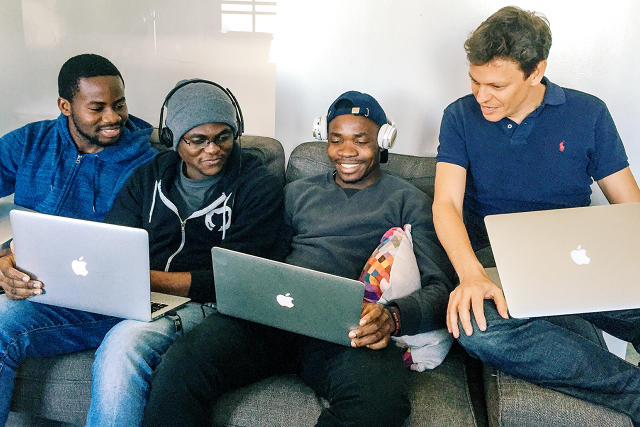
“For Andela, it’s all about, how do you find the smartest, most driven people possible?” says cofounder and CEO Jeremy Johnson, who previously cofounded higher education startup 2U. “It turns out those people are inherently valuable. Being able to help them earn 10 times their lifetime income is an incredible model to build out.”
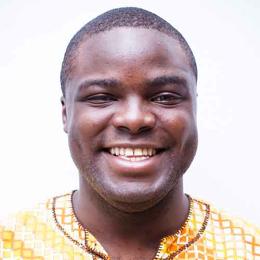
Each Andela program site welcomes a new single-digit cohort of fellows roughly 10 times per year. Many hear about Andela through cofounder Iyinoluwa Aboyeji, a serial entrepreneur from Nigeria with a broad network in African technology circles. A tweet from his Twitter account can lead to hundreds of applications.
Tchirou beat out thousands of other candidates to win his spot. Within weeks, he had been assigned his first client work for a startup called Connect—headquartered thousands of miles away in San Francisco.
Tray Lewin, Connect’s chief technology officer, wasn’t sure what to expect from his new hire. “Quite frankly, I had worked with a lot of offshore, outsourcing projects before, and I am not a fan. It’s just hard,” he says. The Connect engineering team works in two-week sprints, with the goal of rapidly iterating on the company’s goal of serving as a hub for communicating with friends across social platforms. “If you’re a startup and you’re trying to turn the crank and make things pop out every day, you can’t offshore that.”
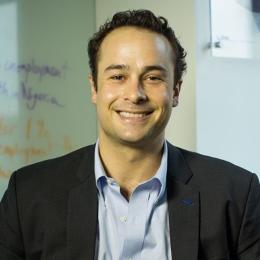
But Tchirou’s knack for coding elegant solutions, combined with the influence of Andela’s soft skills training, quickly won Lewin over. “Coding is part art, part science. There are patterns and best practices you should know, and then there’s how you craft your code,” he says. “[Tchirou] was able to deliver. Now I can trust him and give him difficult projects.”
Tchirou credits Andela’s training with helping him get comfortable operating in a collaborative environment. “Bootcamp was challenging for me. Not really the technical side, more the team dynamics,” he says. “I’m not the most social person.”
Andela’s emphasis on soft skills is by design: Fellows have to learn to parse context during a Skype call with the same dexterity they use to debug JavaScript. “Communication matters, accountability matters,” Johnson says. “It’s great to be smart, but you need to be able to actually engage with other people. In a remote environment, those things become even more important: You have to over-communicate, you have to over-engage, you have to be overly accountable.”
But even Skype and Google Hangout veterans acknowledge the power of in-person conversation. As much as possible, Andela works with its hiring partners to arrange travel visas and send fellows to their home offices for brief stints.
Tchirou’s first visit to Connect happened to coincide with an engineering team offsite at Lake Tahoe. “That place is really beautiful,” he says. “We spent one week together living in the same house, going out.”
But Andela had not prepared him for two “soft-skill” activities essential to Tahoe life: hot-tubbing and skiing. “I fell down a lot,” Tchirou says of his time on the slopes.
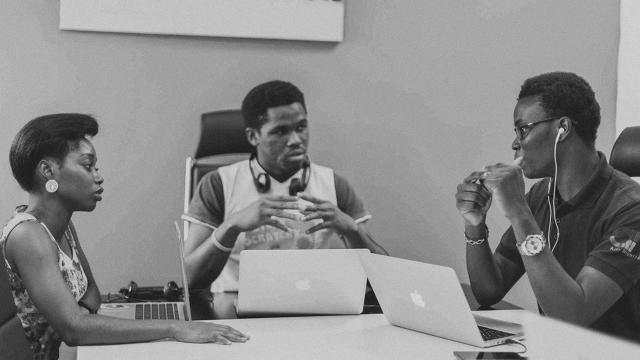
“He was, oh man, having a hard time,” says Simon Rojas, a Connect engineer from Venezuela who has become one of Tchirou’s mentors. “In the end, he got it, and he had fun.”
Both engineers know what it’s like to adjust to new cultural norms. “In Nigeria, everybody greets everybody when they get to the office,” Tchirou says. “In the morning, I was like, did I do something to these guys?”
“Venezuelans are famous for being big huggers,” Rojas says. “It’s not such a thing here, even though they’re very laid-back.”
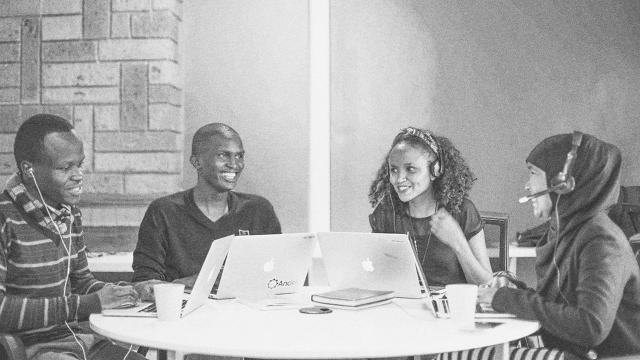
Now Tchirou is back in Lagos, living in Andela housing and working West Coast hours in order to be in sync with his colleagues. On a future visit to the U.S., he’s thinking of leading a “flash talk,” a Friday tradition at Connect during which employees expound on recent projects or idiosyncratic interests.
Tchirou’s preferred topic: Togo, possibly, or Japanese anime, his passion. “I am always trying to introduce people to Japanese anime without much success,” he sighs, before getting back to work.
Fast Company , Read Full Story
(28)